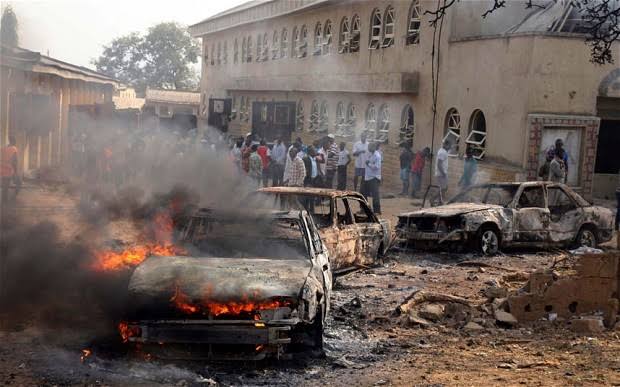Nation
Over 100 soldiers, 200 civilians killed in five months — Report warns of Boko Haram resurgence

A new report by security research firm Nextier SPD has revealed that more than 100 military personnel and over 200 civilians were killed in Boko Haram attacks across Nigeria between November 2024 and April 2025.
The report, titled “Re-thinking Nigeria’s Counterinsurgency Strategy: The Aftermath of the Boko Haram Resurgence,” provides a grim snapshot of Nigeria’s worsening insecurity and calls for a comprehensive overhaul of the nation’s counterinsurgency strategy.
Authored by Dr. Ndu Nwokolo, Managing Partner at Nextier and Honorary Fellow at the University of Birmingham, and Dr. Chibuike Njoku, a Senior Research Fellow at IFRA-Nigeria, the report highlights a sharp escalation in insurgent activities, particularly in the North East and border regions.
According to the findings, Nigeria recorded 252 terrorist attacks within the six-month period, with January 2025 witnessing the deadliest wave of violence, resulting in 92 fatalities.
The authors warned that Boko Haram factions—Jama’atu Ahlis Sunna Lidda’awati wal-Jihad (JAS) and Islamic State West Africa Province (ISWAP)—have evolved their tactics, using improvised explosive devices (IEDs), ambushing military convoys, and attacking internally displaced persons (IDP) camps and farming communities.
The report notes that three local government areas in Borno State were recently seized by insurgents, signaling a major challenge to state authority and disrupting humanitarian operations.
“Despite sustained military operations and regional coordination, Boko Haram factions continue to pose a serious threat to national and regional stability,” the report said. “Their recent gains show that Nigeria’s largely kinetic military approach has failed to address root causes of the insurgency.”
Beyond the body count, the report paints a broader picture of deteriorating civil-military relations, growing fatigue among soldiers, and increasing sophistication in insurgent tactics.
Insurgents are not only ramping up direct assaults but also engaging in abductions. Kidnapping cases were recorded in February, March, and peaked in April 2025 with eight victims. These incidents reflect what the authors describe as an “operational adaptation,” where extremists exploit weak state capacity and security lapses.
The report criticizes the federal government for relying too heavily on force while neglecting the socio-economic triggers of extremism. Issues like poverty, youth unemployment, poor access to education, and weak service delivery continue to fuel radicalisation and unrest, the authors said.
“Military success on the battlefield has not translated into sustainable peace at the community level,” the report warned. “There is a glaring failure to meaningfully integrate economic development and inclusive dialogue into the security framework.”
The researchers also flagged weak coordination among security agencies, human rights abuses by security forces, and growing resistance to the reintegration of former insurgents as major obstacles to long-term peacebuilding.
They concluded that Nigeria’s current counterinsurgency strategy is largely reactive, and must be reimagined to include a preventative, community-driven approach that combines governance reforms with targeted development efforts in vulnerable regions.






